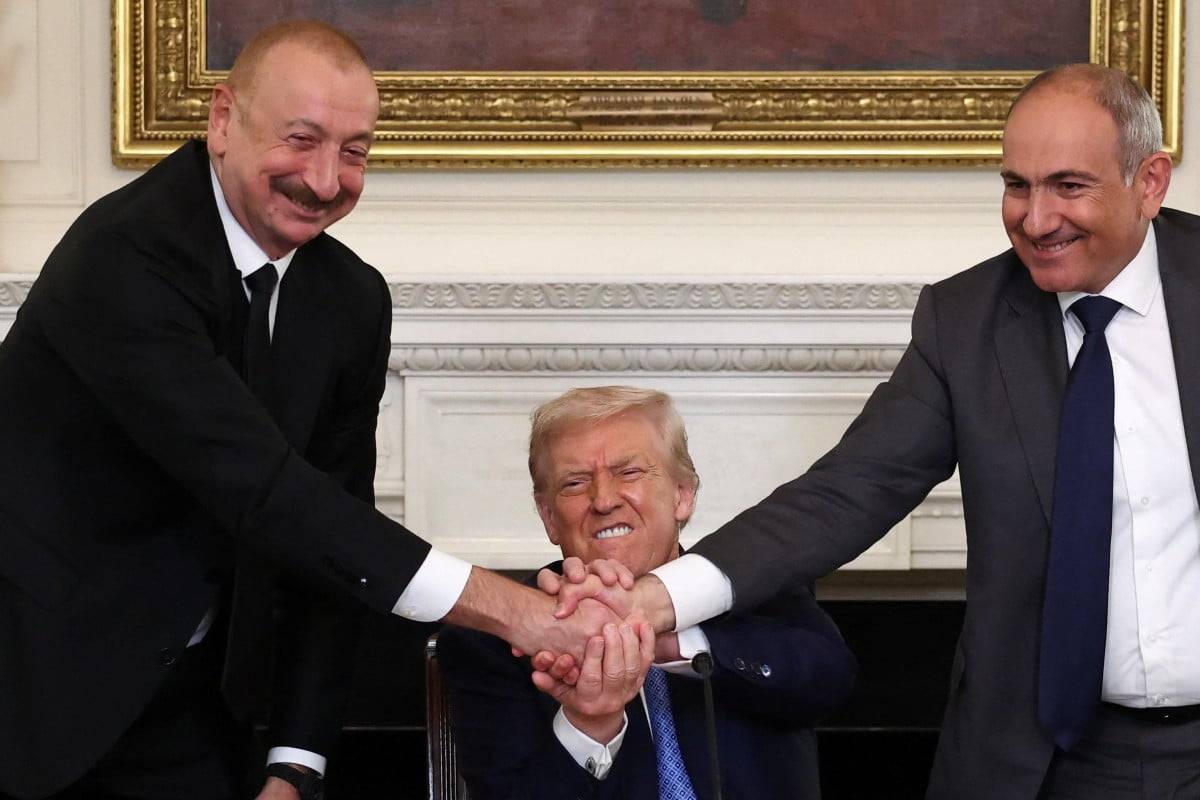1106 Views
Armenia's Silent Surrender: The US-Backed Plan to Erase a Nation in Broad Daylight
In recent days, following secret negotiations between officials from the Republic of Azerbaijan and Armenia in Washington—which included a joint trilateral meeting—the Prime Minister of Armenia and the President of Azerbaijan, in the presence of Donald Trump at the White House, signed a joint statement. According to this statement, they officially called for the dissolution of the Minsk Group and went on to publish the text of their joint declaration.
What has been announced and published from this declaration provides a framework for agreements regarding the peace process and the reopening of communication routes in the South Caucasus. This process will be carried out under Washington’s direct supervision and without the participation of other Minsk Group members. Experts assess this agreement as a political show staged by Trump in the White House, creating no real breakthrough.
The first issue to highlight is the extreme secrecy of the parties regarding the potential agreement’s content. Despite the possibility of signing a “peace treaty” or “memorandum of understanding” in the future, its details have been hidden from the public, with only vague promises of “U.S. support” and “guarantees” being made.
Behind these negotiations and the joint statement—prepared in secret under U.S. pressure and without informing key regional powers such as Russia and Iran—the unilateral nature of news coverage is striking. The initial, selective release of information through Azerbaijani media alone not only caused social shock in Armenia but, combined with Yerevan’s long silence on the matter, also sparked a wave of mistrust and a feeling among Armenians of being excluded from the decision-making process.
Yerevan’s media have warned that such secrecy could serve as a tool for Washington and Baku to exert influence in Armenia. By exploiting their own media outlets, Baku can impose its narrative and cause psychological shock in Armenian society. Armenian political activists warn that decisions made “without us, for us” may later be marketed as a “historic breakthrough” through Western propaganda tools.
While the Armenian government remained silent for hours, publishing no information of its own and relying solely on U.S. support and security guarantees—while keeping the details from the public—Armenian society insisted on its right to self-determination and demanded answers from Yerevan’s officials. This clearly shows that such secret deals primarily serve extra-regional actors and Baku, while disregarding the Armenian people’s rights and national sovereignty.
Another key aspect is the role of Turkey and NATO in these negotiations and agreements. NATO has long sought influence in West Asia, the Caucasus, and the Baltics, never shying away from these goals. In this case, it is clear that the aim of these arrangements is not lasting peace but rather the creation of a Western sphere of influence near Iran’s borders.
Changes in the geopolitical landscape, driven by the U.S. and Azerbaijan, will not only reshape the Caucasus but also undermine the region’s balance of power and security. Turkey, seizing the opportunity to strengthen its geopolitical position, is acting as NATO’s full executor in the Caucasus—challenging Tehran’s influence over transport and energy routes.
It is important to note that all three leaders involved have strong political and personal motives. Using the pretext of “peace,” they are pursuing their own goals. Ilham Aliyev, by promoting the “Zangezur Corridor”—now flattering Trump by calling it the “Trump Corridor”—seeks to suppress domestic discontent and reap personal gains. Nikol Pashinyan, using the “peace” label, aims to secure his political position in upcoming elections. Trump, in turn, plays his familiar role as a domineering actor, using these two countries to pursue his ownagenda—seeking international recognition as a “peacemaker,” including the Nobel Peace Prize, while in reality advancing America’s power-driven goals under the guise of peace projects.
In conclusion, this memorandum—crafted in secrecy, with selective and incomplete information, driven by electoral and personal motives, and without considering the region’s realities—not only threatens Armenia’s territorial integrity but also poses a serious danger to the national interests of regional countries. It will serve as a tool for advancing America’s hegemonic ambitions, using Baku as a new card in the game. The fate of Armenia must be determined by the Armenian people’s participation—not by foreigners in Washington, Ankara, or Brussels. Outside interference in the Caucasus’ political and security processes undermines Armenia’s national independence and paves the way for further wars and tensions in the region.
*Translated by Ashraf Hemmati from the original Persian article written by Navid Daneshvar

Comment
Post a comment for this article